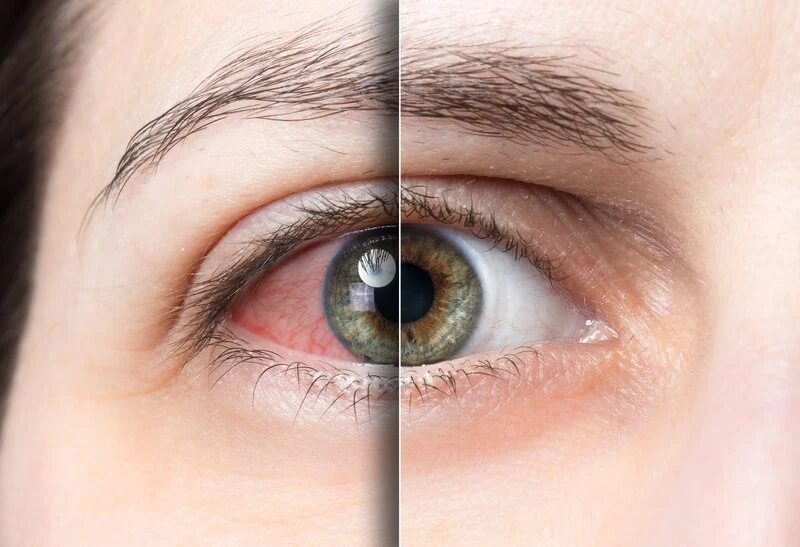Let's be real with ourselves, the only time we consider taking an eye exam is when we find ourselves squinting at the menu or turning up the brightness of screens for the 100th time but our eyes need help way before that.
So, if you’re looking for clues, here are 7 signs you shouldn’t ignore and book an eye exam ASAP.

Blurry vision
If you’re experiencing difficulties in spotting objects whether near or far, it may be early signs of decline in vision. Blurred vision is quite common due to long exposure to blue lights or old age and commonly associated with farsightedness, nearsightedness or astigmatism. However, blurry vision may also be early signs of more serious conditions like cataracts, macular degeneration or diabetic retinopathy. Hence, it is advised to undertake an eye examination to know more about blurry vision causes.
Frequent headaches
If you’re experiencing frequent headaches, especially after hours of reading or screen time, it is time to consult an eye health specialist as it may be due to uncorrected vision problems or eye strain. You can consider updating your prescription or correcting visual misalignments to treat headaches but if they’re more frequent than usual then it is time to get an eye exam.
Eye strain/visual fatigue
If your eyes are feeling sore, tired or dry more frequently than usual, more particularly after long duration of reading, blue light exposure or driving, it may be due to digital eye strain or outdated prescription. Consulting an optometrist and taking an eye examination is advisable as a proper eye examination helps in identifying the root of the problem and providing relief through visual corrections or ergonomic suggestions.
Degrading night vision
If you have started experiencing night vision problems such as difficulty in driving after dark or slow adjustments to low light, these can be early signs of age-related changes in vision, including cataracts.
This change in night vision not only affects your quality of life but also poses a huge risk to your safety. Hence, it is advised to consult an eye specialist and give an eye examination so that your condition can be taken care of.
Double vision
Diplopia, also known as Double vision, does not have a singular root cause and can be caused by a range of conditions like eye muscle imbalance, corneal irregularities or other neurological disorders.
It is difficult to analyze the reason behind double vision without properly conducting an eye exam, hence it becomes essential for you consult an eye specialist as it poses more serious underlying issues which can worsen with delay.

Floaters, flashes of light, or spots
Floaters are those tiny specks, threads or cow-web shape shapes that float across your vision field. They are commonly caused by tiny clumps of collagens or cells inside the vitreous. Floaters are usually harmless, however, a sudden increase in floaters, flashes of light or formation of dark shadows across your vision may be early signs of retinal detachment.
Such case of an emergency requires immediate medical attention to prevent vision loss. Hence one should get an eye doctor appointment when the floaters or flashes of light start becoming frequent.
Persisting itchiness, redness or dryness
These symptoms can be caused by multiple reasons like allergies, environmental factors or chronic conditions such as dry eye syndrome or allergic conjunctivitis.
You can consider using over the counter treatments like tear drops to keep the eyes moist and avoid dryness and irritation but if the symptoms are persistent and keep worsening, it is time to get a professional eye exam.

Q&A
Can eye exams detect other health issues?
Yes, eye exams can help identify health conditions like diabetes (diabetic retinopathy) from damage to small blood vessels in the retina, Multiple Sclerosis (MS) from inflammation of the optic nerve or autoimmune Diseases like Lupus, rheumatoid arthritis, and Sjögren’s syndrome from excess dry eyes or inflammation.
